Nissan Leaf Nismo Confirmed, Baby!

Nissan unveiled the Leaf Nismo EV this week, with sales commencing in Japan at the end of the month. This is a big surprise for the Western automotive media, as few of us truly believed it was possible. While rumors suggested the existence of such a vehicle, we presumed it would either not happen or manifest as a pathetic appearance package on a vehicle entirely consumed with efficiency.
We were wrong. Nissan actually retuned the Leaf’s computer for improved acceleration and gave it a bunch of meaningful performance upgrades.
However, Nissan didn’t say how much faster it would be compared to a standard Leaf. The model isn’t exactly sprightly (0-to-60 takes around 7.5 seconds), so the improvements probably won’t convert the Nismo variant into the ultimate sleeper car.
It also won’t look the part. While the automaker did chuck in a bunch of performance upgrades, appearance remains a large part of the equation. It has some strips of red trim (which is all the rage right now), new front and rear fasciae, LED headlamps, two-tone paint job, and a few other touches that make it look more aggressive. There’s also some red stitching found in the cabin, red trim pieces, a flat-bottomed, Alcantara-clothed steering wheel, sport seats, an an upgraded gear selector.
If that’s all it was, we’d be annoyed. But Nissan took the time to give the electric vehicle some meaningful hardware, as well. In addition to programming the computer to improve acceleration, Nissan also tweaked the braking system, traction control and anti-lock brakes to prioritize dynamics. The Leaf Nismo also has a new set of shock absorbers and unique 18-inch alloy wheels wrapped in Continental ContiSportContact 5 tires.
It’s not going to take down a Tesla P100Ds Model S, but it also isn’t supposed to. It’s an electric economy vehicle that Nissan kicked in the pants. But it does make us very excited about the future possibility of a Nismo variant of the more powerful, long-range Leaf E-Plus.
We are keenly aware that the prospects of this coming to North America aren’t great. However, we’re hoping Nissan listens and realizes that this is the kind of thing we want to see from Nismo — and that the idea of a juiced-up Leaf is something the market could be interested in.
Thus far, Nissan hasn’t mentioned any plans to sell this thing outside of Japan.
[Images: Nissan]

A staunch consumer advocate tracking industry trends and regulation. Before joining TTAC, Matt spent a decade working for marketing and research firms based in NYC. Clients included several of the world’s largest automakers, global tire brands, and aftermarket part suppliers. Dissatisfied with the corporate world and resentful of having to wear suits everyday, he pivoted to writing about cars. Since then, that man has become an ardent supporter of the right-to-repair movement, been interviewed on the auto industry by national radio broadcasts, driven more rental cars than anyone ever should, participated in amateur rallying events, and received the requisite minimum training as sanctioned by the SCCA. Handy with a wrench, Matt grew up surrounded by Detroit auto workers and managed to get a pizza delivery job before he was legally eligible. He later found himself driving box trucks through Manhattan, guaranteeing future sympathy for actual truckers. He continues to conduct research pertaining to the automotive sector as an independent contractor and has since moved back to his native Michigan, closer to where the cars are born. A contrarian, Matt claims to prefer understeer — stating that front and all-wheel drive vehicles cater best to his driving style.
More by Matt Posky
Latest Car Reviews
Read moreLatest Product Reviews
Read moreRecent Comments
- W Conrad I'm not afraid of them, but they aren't needed for everyone or everywhere. Long haul and highway driving sure, but in the city, nope.
- Jalop1991 In a manner similar to PHEV being the correct answer, I declare RPVs to be the correct answer here.We're doing it with certain aircraft; why not with cars on the ground, using hardware and tools like Telsa's "FSD" or GM's "SuperCruise" as the base?Take the local Uber driver out of the car, and put him in a professional centralized environment from where he drives me around. The system and the individual car can have awareness as well as gates, but he's responsible for the driving.Put the tech into my car, and let me buy it as needed. I need someone else to drive me home; hit the button and voila, I've hired a driver for the moment. I don't want to drive 11 hours to my vacation spot; hire the remote pilot for that. When I get there, I have my car and he's still at his normal location, piloting cars for other people.The system would allow for driver rest period, like what's required for truckers, so I might end up with multiple people driving me to the coast. I don't care. And they don't have to be physically with me, therefore they can be way cheaper.Charge taxi-type per-mile rates. For long drives, offer per-trip rates. Offer subscriptions, including miles/hours. Whatever.(And for grins, dress the remote pilots all as Johnnie.)Start this out with big rigs. Take the trucker away from the long haul driving, and let him be there for emergencies and the short haul parts of the trip.And in a manner similar to PHEVs being discredited, I fully expect to be razzed for this brilliant idea (not unlike how Alan Kay wasn't recognized until many many years later for his Dynabook vision).
- B-BodyBuick84 Not afraid of AV's as I highly doubt they will ever be %100 viable for our roads. Stop-and-go downtown city or rush hour highway traffic? I can see that, but otherwise there's simply too many variables. Bad weather conditions, faded road lines or markings, reflective surfaces with glare, etc. There's also the issue of cultural norms. About a decade ago there was actually an online test called 'The Morality Machine' one could do online where you were in control of an AV and choose what action to take when a crash was inevitable. I think something like 2.5 million people across the world participated? For example, do you hit and most likely kill the elderly couple strolling across the crosswalk or crash the vehicle into a cement barrier and almost certainly cause the death of the vehicle occupants? What if it's a parent and child? In N. America 98% of people choose to hit the elderly couple and save themselves while in Asia, the exact opposite happened where 98% choose to hit the parent and child. Why? Cultural differences. Asia puts a lot of emphasis on respecting their elderly while N. America has a culture of 'save/ protect the children'. Are these AV's going to respect that culture? Is a VW Jetta or Buick Envision AV going to have different programming depending on whether it's sold in Canada or Taiwan? how's that going to effect legislation and legal battles when a crash inevitibly does happen? These are the true barriers to mass AV adoption, and in the 10 years since that test came out, there has been zero answers or progress on this matter. So no, I'm not afraid of AV's simply because with the exception of a few specific situations, most avenues are going to prove to be a dead-end for automakers.
- Mike Bradley Autonomous cars were developed in Silicon Valley. For new products there, the standard business plan is to put a barely-functioning product on the market right away and wait for the early-adopter customers to find the flaws. That's exactly what's happened. Detroit's plan is pretty much the opposite, but Detroit isn't developing this product. That's why dealers, for instance, haven't been trained in the cars.
- Dartman https://apnews.com/article/artificial-intelligence-fighter-jets-air-force-6a1100c96a73ca9b7f41cbd6a2753fdaAutonomous/Ai is here now. The question is implementation and acceptance.



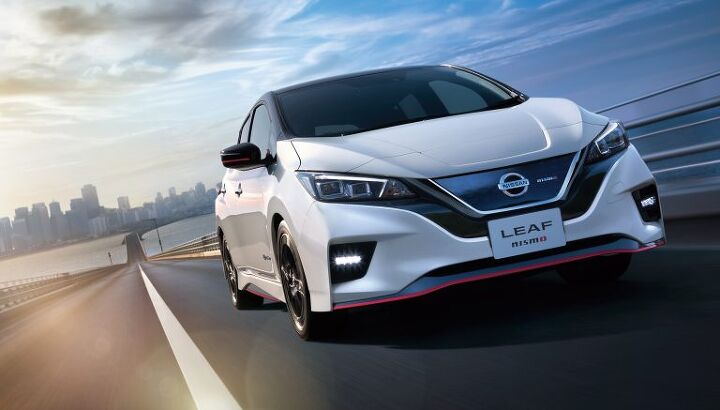


















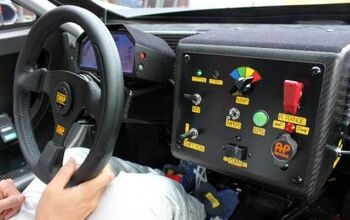
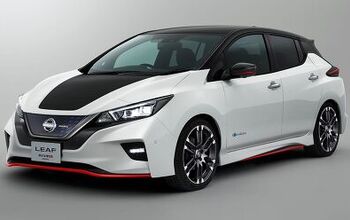






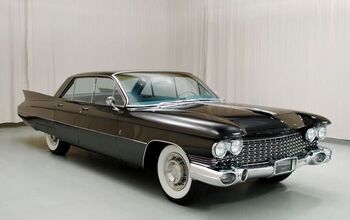



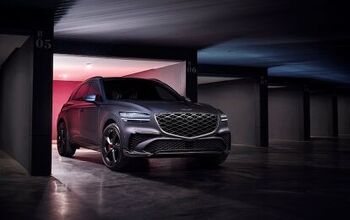


Comments
Join the conversation
Oh look, an ugly Bolt, with totally inferior everything. What a waste of time.
These things might work well in The Sun Belt but not all of us live there, thank Glavin. This, or any other Leaf, can't get me to work for six months of the year. Were it lifted 6" and AWD - sure. As long as I could charge it at work, and know that it would both start and move with 3' of snow blown up around it. My F-150 handles this admittedly rare situation admirably for the time being.